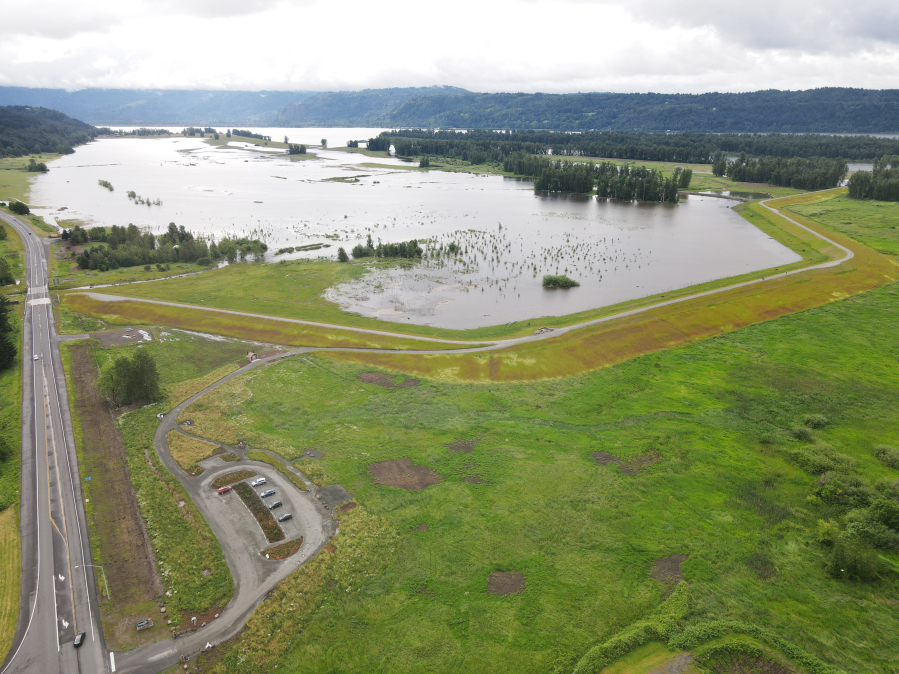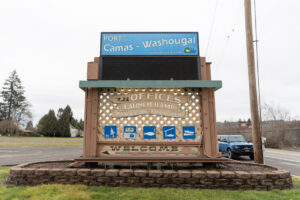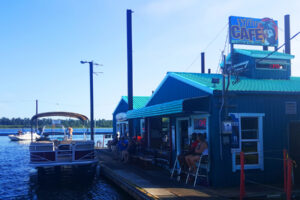The Port of Camas-Washougal is negotiating a land-swap transaction with the United States Fish and Wildlife Service (USFW) that would expand the Port’s inventory of usable, and possibly developable, land near the Steigerwald refuge.
The Port and the USFW started talking about a possible land swap after realizing that one of the levees constructed during the Steigerwald Reconnection Project in 2021 would divide an area of land near the west end of the Steigerwald Wildlife National Refuge, with an 18-acre piece of Port property on one side and 11 acres of USFW land on the other.
“The levee bisects their property and our property,” the Port’s chief executive officer, David Ripp, said. “The thought is, our property is on their side, and their property is on our side, so we’ll do a swap. It would be all uniform then. Our property surrounds (their 11-acre plot) now. It just doesn’t make sense (to keep things the way they are). We could have a contiguous piece of property, and they could have a contiguous piece of property.”
The two organizations agreed to postpone talks until the project finished “to see where the property lines would be after the levee was finished,” according to Ripp.
The Port’s 18 acres was valued at $72,000 while the USFW’s 11 acres was valued at $242,000, meaning the Port would have to pay the federal government agency $172,000 to complete the transaction, according to Ripp, who added that the Port would use funds from its reserve account to pay for the land.




